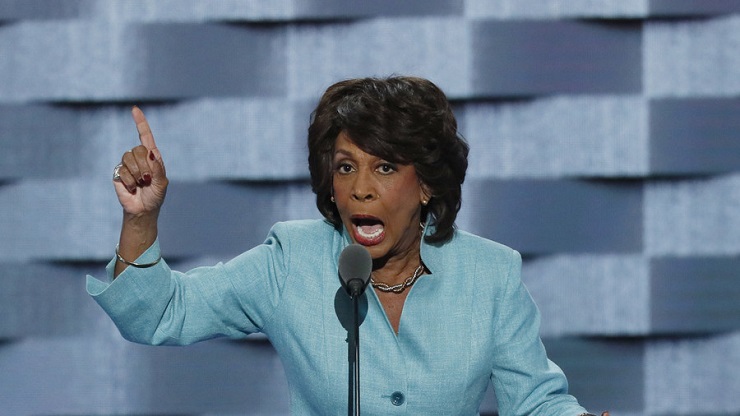With the approval of a conservative, anti-feminist judge to the Supreme Court, the divide between Democrats and Republicans widened, as it does periodically. But this time around, it goes far toward explaining why socialism has never been able to gain a foothold in the United States, notwithstanding that the Democratic party has more members than the Republican Party and wear the progressive mantel. As one observer put it: “The Republicans are willing to do whatever it takes to get and execute power, while the Democrats are busy trying to be bipartisan and friendly and conciliatory and compromising and looking reasonable and as a result they get beaten up time and again.”
Earlier this year, Maxine Waters, a long-time black representative from California was mocked by the President after criticizing him in unusually strong terms. While her message resonated with younger voters ‘of color’, it was rejected by part of the black establishment, setting off split in a Democratic Party eager to recapture power. When Cory Booker, who recently became the junior Senator from New Jersey, suggested people should ‘get in the face’ of the other side, Michelle Obama doubled down with a mantra that had been popular during her husband’s presidency:“When they go low, we go high”.
The dispute became a major news item when Hillary Clinton declared that it was no longer possible to be civil with the Republicans, and Obama’s’ former Attorney General, Eric Holder insisted that: “When they go low, we kick ’em. That’s what this new Democratic Party is about. I don’t mean we do anything illegal, but we’ve got to be tough, and we have to fight for the very things that [civil rights] leaders like Martin Luther King gave us.”
This may sound like a tempest in a tea-cup, but the newly erupted disagreement over progressive behavior could mark a crucial turning point for Democrats. The painful truth that they have been hiding for a hundred years is that progressives have never been able to win power in the American system.
Teddy Roosevelt founded the Progressive Party Following World War I, but was soon forced to fold his program, known as the Square Deal into the Republican Party. Although he sought to dissolve government’s ‘unholy alliance’ with ‘corrupt business’ and introduce progressive reforms, Americans invariably associate with him with his physical exploits, such as leading the ‘Rough Riders’ during the Spanish- American War over Cuba — not to mention his bloody takeover of the Philippines.
Probably because of Teddy’s imperialist role, Americans are more likely to associate progressive politics with his distant cousin, Franklin Delano Roosevelt. Before leading the United States in the war against fascism in the nineteen forties, FDR brought Teddy’s progressive agenda from the Republican Party, where it had died, into the Democratic Party, calling it The New Deal. But in the anti-Communist climate that resumed after World War II, it too failed to survive, as McCarthy put an end to any hopes American activists might have had of achieving a progressive regime.
When Bill Clinton first ran for President in the early nineties, he was seen as a progressive. But he bombed Yugoslavia and made draconian changes to welfare legislation. By the time his wife ran, in 2016, she was rightly accused of cozying up to Wall Street, refusing to reveal the exorbitant sums they paid her to speak. As a result, those she referred to as ‘a basket of deplorables’ voted for Trump and still shout ‘Lock Her Up!’ at his rallies.
Although it comes as somewhat of a surprise to hear a former Attorney General call for his party’s politicians to get tough in order to rid the country of Donald Trump, Democrats would have to take back the majority in both the House of Representatives and the Senate in the early November election for this to happen. Judging from the lengths even progressive Republicans went to get Judge Kavanaugh onto the Supreme Court, and the Democrats’ failure to prevent it, new Democratic candidates are ready to take off the gloves. As one aspiring representative recently commented:“Democrats tend to bring a knife to a gun fight, while Republicans bring a rocket launcher.”
For Democrats to truly break with tradition, running on the social democratic program presented by Bernie Sanders in 2016, they would also have to fight against gerrymandering, (the deliberate design of geographic voting areas to take advantage of, or reduce the number of progressive voters) as well as exposing other measures aimed at preventing them from voting, such as requiring identification cards, i.e., a drivers’ license, which many lower income people do not have.
The consensus is slowly growing among young democrats that they will have to adopt some of the other side’s tactics, however repugnant they seem. The question is whether the old party ‘machine’, still committed to the one percent, will allow that to happen.
Deena Stryker is an international expert, author and journalist that has been at the forefront of international politics for over thirty years, exlusively for the online journal “New Eastern Outlook”.

